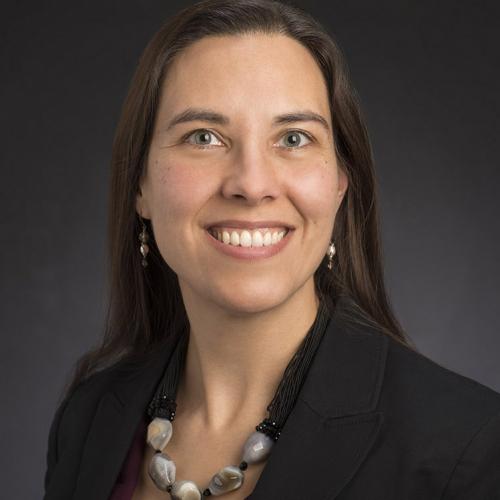Assistant Professor Elizabeth Hoiem’s current research is built around questions of how we define children’s literature. She studies childhood literacy during the Industrial Revolution and the ways in which our understanding of literature, readers, and change agents of this time period is impacted by how we choose to define childhood literature in the first place.
Critical to understanding her work is the recognition that many young readers of the time were children only in strictest demographic terms. In reality, many children—some as young as five years old—were full-time wage earners in industries like textiles, coal mining, and agriculture. Only wealthier children had time and resources available to them to pursue reading and learning.
Because of this circumstance, “children’s” literature in reality catered to only a portion of society’s young people. The formats and content of children’s literature and educational materials of the time period were very different from what we recognize as children’s literature today, due to the narrow audience and pedagogical theories popular during the era.
For example, it was believed that children learn best by encountering physical things in their environment. In literature, this idea translated to an emphasis on object lessons, such as collectible flash cards or glossaries that directed readers to seek out examples of objects at home. This led to a belief that poorer children were not able to learn as much because they had fewer belongings at home through which to experience the world around them. In an attempt to correct this perceived situation, schools for the poor gave children bits of wood or raw materials to handle and trained them to describe their environment as preparation for learning to read.
Historically, studies of children’s literature have skewed toward those materials developed for and used by wealthier children. Hoiem argues that expanding the scope of children’s literature studies could impact how we define the genre today and how we think about the role of literature in early learning and development. Expanded studies might include object lessons used at lower-class schools or printed materials consumed by working children, such as flyers about working conditions, in addition to the more traditionally recognized forms of literature that were consumed by wealthy children.
Recognizing faults in how we define the genre can raise ethical questions about larger systemic issues within this research area. For example, Hoiem sees discrepancies between actions taken to support learning opportunities for lower-class children during the industrial revolution and where credit is given for implementing beneficial change.
“In this case, I think the histories of children’s literature that exclude these other factors tend to imply that all of the credit for respecting the rights of children, developing materials for them, and improving their education . . . should be given to the charity organizers, the wealthier people, and the lawmakers who advocated for these policies,” Hoiem explained.
“We have a problem going on with class [in which] credit is given exclusively to these wealthy saviors of children who supposedly argued that children should go to school instead of work, but the only reason they ever argued is because the poor demanded it. You have to look at this history on the ground as well.”
Hoiem is an assistant professor at GSLIS. She teaches in the areas of children’s literature, history of children’s literature, and fantasy literature. In her research and teaching she explores the history of technological innovations in children’s literature—from early children’s books and toys to contemporary applications of digital pedagogy—and looks at modern technology through a historical lens. Her research interests also include community engagement—specifically, the importance of literature to contemporary youth.
This article initially appeared in the Fall 2015 issue of Intersections magazine.
